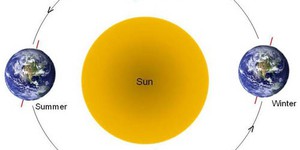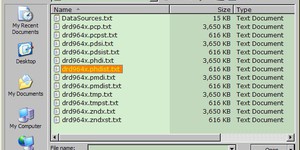Climate Action, Fifth Grade Science Projects (8 results)
The United Nations Sustainable Development Goals (UNSDGs) are a blueprint to achieve a better and more sustainable future for all.
These projects explore topics key to Climate Action: Take urgent action to combat climate change and its impacts.
These projects explore topics key to Climate Action: Take urgent action to combat climate change and its impacts.
Science Buddies' fifth grade science projects are the perfect way for fifth grade students to have fun exploring science, technology, engineering, and math (STEM). Our fifth grade projects are written and tested by scientists and are specifically created for use by students in the fifth grade. Students can choose to follow the science experiment as written or put their own spin on the project.
For a personalized list of science projects, fifth graders can use the Science Buddies Topic Selection Wizard. The wizard asks students to respond to a series of simple statements and then uses their answers to recommend age-appropriate projects that fit their interests.
Let us help you find a science project that fits your interests, with our Topic Selection Wizard.|
Select a resource
Coding Projects
Sort by
|
Do you live someplace where you get to experience the full glory of all four seasons? If so, you know well the heady blossoms and dramatic skies of spring; the long, sun-drenched days of summer; the trees shaking in crimson and gold in fall; and the sparkling, brittle snows of winter. But you might not know why we have these seasons, over and over again, in a cycle as predictable as the rising and setting of the Sun. The reasons for the seasons are surprising and have to do with Earth's tilt…
Read more
Of course it can, you say: ice is water and ice floats! And you're right. But we're talking about water in the liquid phase (the title reads better without getting overly specific). So how about it? Can liquid water float on water? Check out this project to find out.
Read more
New
How do you feel right now? Do you remember how you felt a few hours ago? How about yesterday or last Wednesday? What if you could track your emotions throughout the day and use this information to help improve your mood and well-being? In this science project, you will program a simple, pocket-sized device that you can carry around with you to log your feelings whenever you want or on a specific schedule.
Read more
Has the temperature in your house felt hotter or colder recently? This could be due to the greenhouse effect. The greenhouse effect states that gases in the atmosphere, such as CO2, might increase the surface temperature of Earth. In this science fair project, you will build a small model of Earth and use it to see how the temperature varies, compared to outside of the model. If you select this science fair project, you will be a part of the effort that is working to figure out what role…
Read more
Global warming is how scientists describe the gradual warming of our global climate. Scientists think that the trend towards global warming can be attributed to the build up of greenhouse gases in the earth's atmosphere from industrialization. Another problem is deforestation, as we remove plants and trees from the environment to meet a high demand for lumber or by clear cutting fields for farming and urbanization. By removing trees from the earth's environment, are we changing how greenhouse…
Read more
On a rainy day, do you ever wonder what the weather is like on the other side of the planet? Different regions around the globe can have very different seasonal weather patterns. In this experiment, you can test if these seasonal variations are related to which hemisphere each region is located in.
Read more
New
Are you ever annoyed by a poor Wi-Fi signal? What about when you try to send a text message, and it just won't go through because of poor cell service? Have you ever wondered what factors affect the strength of your signal and the speed of the connection? If so, this project is for you!
Read more
Can you remember what the weather was like last week? Last year? Here's a project that looks at what the weather was like for over a hundred years. You'll use historical climate data to look at moisture conditions in regions across the continental U.S. You'll use a spreadsheet program to calculate the frequency of different moisture conditions for each region and make graphs for comparison. Which part of the country has the most frequent droughts? The most frequent periods of prolonged…
Read more
Can you remember what the weather was like last week? Last year? Here's a project that looks at what the weather was like for over a hundred years. You'll use historical climate data to look at moisture conditions in regions across the continental U.S. You'll use a spreadsheet program to calculate the frequency of different moisture conditions for each region and make graphs for comparison. Which part of the country has the most frequent droughts? The most frequent periods of prolonged…
Read more
How does temperature vary with latitude? What happens as you move away from the equator? Test this by comparing weather data from weather stations at different latitudes. (FI, 2006; GLOBE, 2006; NCAR, 2006; NOAA, 2006; Unisys, 2006; Weather Underground, 2006; WMO, 2006)
Read more
|












